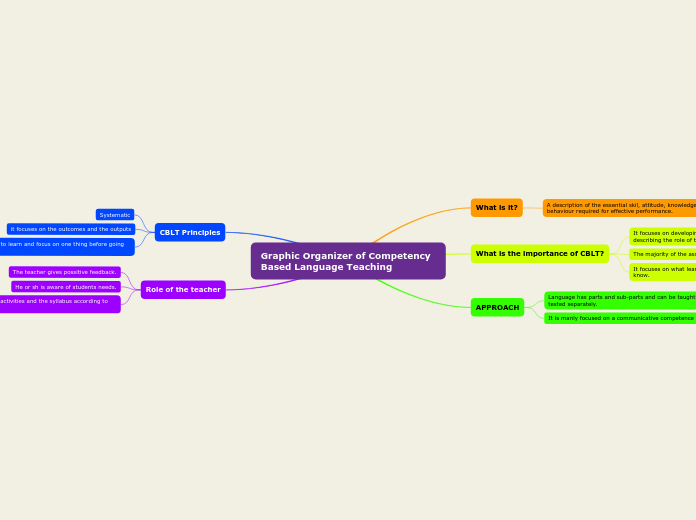Teaching Methods:
Descriptions:
Additional Teaching Approaches:
2. Communicative Approach:* In a communicative approach, students may participate in role-playing games where they simulate real-life situations, such as asking for directions or shopping, thereby practicing effective communication in the target language.
1. Natural Approach:* An example of the natural approach is providing students with authentic materials such as songs, videos, or podcasts in the target language so they can familiarize themselves with the language in a natural and contextualized way.
*Task-Based Instruction (TBI):*
1. In a task-based approach, students engage in practical activities such as simulations of real-life situations, where they perform communicative tasks like making a restaurant reservation or solving a problem in an authentic context.
Teaching Approaches:
2. Analytical Approach:* In contrast to synthetic approaches, analytical approaches start with real and authentic communication situations. Students learn language through meaningful interaction and practical use in real contexts, fostering fluency and comprehension through exposure to authentic language and realistic communication situations.
a. Example: In an analytical approach, students may work on research projects where they analyze and break down authentic texts to understand their structure and meaning.
1. Synthetic Approach:* Synthetic approaches break down language into smaller components such as vocabulary and grammar, taught separately through repeated and structured practice. This method focuses on acquiring specific language skills and accuracy in language production.
a. Example: In a synthetic approach, students might learn new words and grammatical structures through gap-fill exercises, where they complete sentences with the correct words provided.
4. Community Language Teaching:* Focuses on active student participation in authentic communication activities within a collaborative learning environment. Students interact with each other and the teacher to develop language skills through group debates and discussions.
a. Example: In this methodology, students may engage in group interaction activities such as debates or discussions on community-relevant topics, where they practice language authentically and meaningfully.
3. Silent Way Method:* Developed by Caleb Gattegno, this method relies on students learning a language through self-exploration and experimentation. Students take responsibility for their own learning process, with the teacher minimizing verbal intervention and encouraging self-evaluation and reflection.
a. Example: An example of this method is when students learn correct pronunciation by observing the teacher's lips and tongue while they pronounce words, without any additional verbal explanation.
2. Total Physical Response (TPR):* Based on the idea that language learning mirrors the natural process of language acquisition by children, TPR emphasizes comprehension over production. Students respond to physical instructions from the teacher, promoting a stress-free learning environment.
a. Example: In a TPR class, the teacher might give simple physical instructions to students, such as "Stand up", "Sit down", "Open your book", and students respond by performing the corresponding action.
1. Pattern Drill:* Students practice predefined language patterns through repetition and memorization, focusing on controlled practice and error correction to achieve accuracy in language production.
a. Example: In this method, students might practice conjugating regular verbs in the past simple tense by repeating phrases like "I played tennis yesterday" or "She watched a movie last night".









